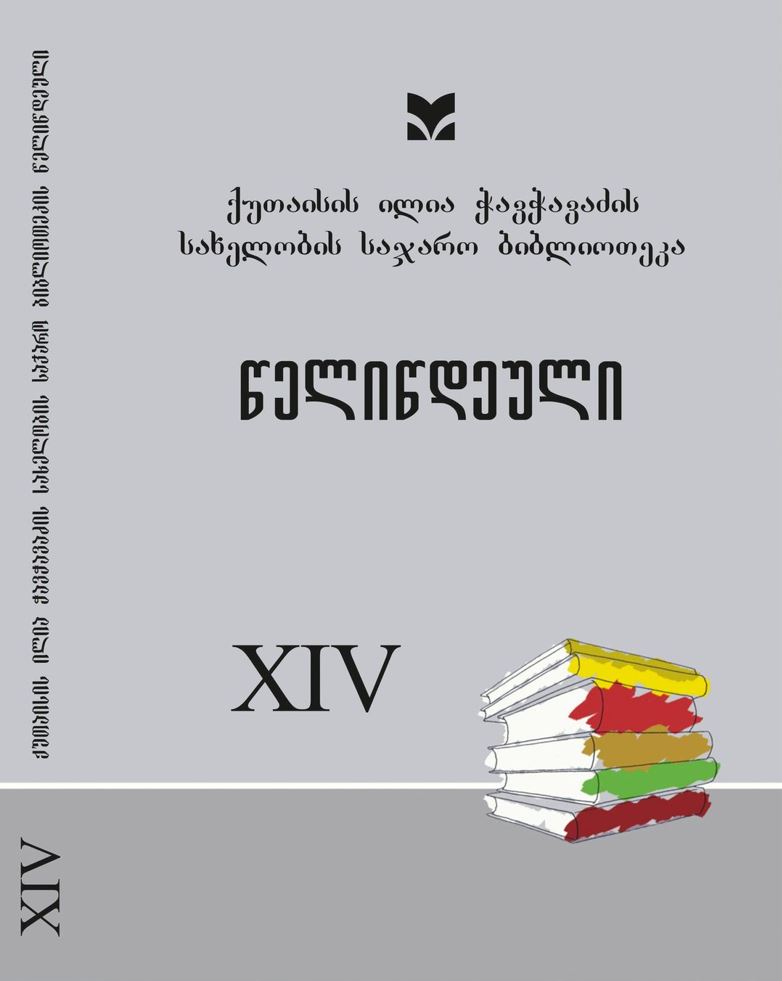Archival insights: Exploring Akaki Jobava's records on „Thoughts about Abkhazians“
DOI:
https://doi.org/10.61491/yk.14.2022.6997Keywords:
Georgian-Abkhaz relations, Akaki Jobava's notes on Abkhazia, Russia's colonial policy in AbkhaziaAbstract
This paper, presented at the conference, discusses the records of Akaki Jobava (1893-1969), a native of Abkhazia and an ethnically Abkhazian individual, focusing on his work titled „Thoughts about Abkhazians“. These recordings, written in Russian and dated 1961, have been preserved within the author’s family archive and handed down to us by his descendants. Before the revolution, Akaki Jobava served in the Russian army, holding a military rank. After the revolution, he returned to his homeland, settling in Sukhumi, and assuming the role of Chief Accountant in the Ministry of Finance of the Autonomous Republic of Abkhazia for several years. Akaki Jobava was a highly educated and literate person, deeply connected to Abkhazian culture and devoted to his homeland. He was fluent in Abkhazian, Megrelian, and Russian languages.
Akaki Jobava was married to Zinaida Karichashvili (1905-1981), a Georgian woman, daughter of Ni-koloz Karichasvili, and the niece of Davit Karichashvili (1862-1927) a renowned Georgian public man. Zi-naida’s mother Mariam was a sister of Leonide (1861-1921), Catholicos-Patriarch of All Georgia, during 1919 -1921. After graduating from the Pedagogical Faculty of Tbilisi State University in 1927, Zinaida was assigned to work as a teacher of Georgian language and literature in Sokhumi, where she met her future hus-band. Later, the couple relocated to Tbilisi, and they had a son named Leonide (Leo) Jobava (1937-1993), who earned a candidate of technical sciences degree and served as an assistant professor at the Polytechnic Institute of Georgia. Influenced by his mother and the Georgian environment he grew up in, Akaki Jobava’s son identified himself solely as Georgian and was an ardent patriot of Georgia. This sentiment extends to Akaki Jobava’s grandchildren as well, who have a Georgian mother and currently reside in exile. Akaki Jobava, his wife, and his son rest in peace at the Digomi cemetery in Tbilisi.
Akaki Jobava’s notes reflect his perspectives and opinions on the legal status of Abkhazians during the pre-revolutionary and Soviet periods. They were written with deep affection for Abkhazia and its people, ac-companied by anguish caused by Russia’s colonial policy in Abkhazia, the mistreatment and harassment of compatriots, the erosion of Abkhazian traditions, and the decline of the Abkhazian language. Even today, Russian policy continues to exert negative consequences in Abkhazia, which remains de facto separated from Georgia, leading to the ongoing degeneration and destruction of the Abkhazian people. Given this context, Akaki Jobava’s notes, as presented at the conference, hold significant importance and deserve special attention.




